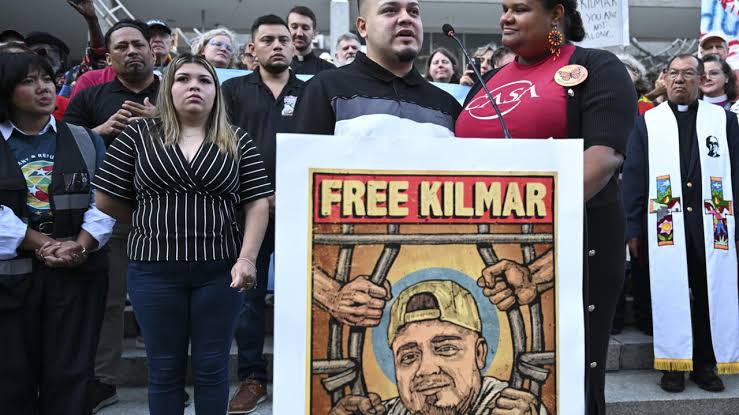A federal judge has temporarily blocked the deportation of Kilmar Abrego Garcia, a 30-year-old Salvadoran man caught in the middle of a heated legal and political battle over U.S. immigration policy under President Donald Trump.
Abrego Garcia, who was wrongfully deported to El Salvador in March before being returned to the U.S., was rearrested Monday in Baltimore by Immigration and Customs Enforcement (ICE), just days after being released from a Tennessee jail where he faced human smuggling charges.
According to the Department of Homeland Security, he was being processed for removal to Uganda, a move that sparked immediate legal action. His lawyers filed an emergency lawsuit, and District Judge Paula Xinis issued a temporary block on the deportation while the case is reviewed further.
Abrego Garcia had reported to ICE in Baltimore as required by the terms of his release. His lawyer, Simon Sandoval-Moshenberg, told reporters and supporters gathered outside the ICE office that his client was detained on the spot.
“Shame, shame,” protesters chanted, holding signs that read “Free Kilmar” and “Remove Trump.”
Abrego Garcia has lived in the U.S. under protected legal status since 2019, after a judge ruled he faced possible harm if returned to El Salvador. But earlier this year, he was mistakenly deported and placed in CECOT, El Salvador’s notorious mega-prison, alongside other undocumented migrants caught in Trump’s renewed immigration sweep.
Following an admission by the Justice Department that the deportation was due to an “administrative error,” he was returned to the U.S. — only to be arrested again in Tennessee on human smuggling allegations tied to the MS-13 gang, which Abrego Garcia denies.
The latest twist came last week when, as his release approached, government officials allegedly offered him a deal: plead guilty and be deported to Costa Rica, or risk being sent to Uganda if he refused.
Abrego Garcia declined the offer, and his attorney blasted the move as coercive and unconstitutional.
“Holding Costa Rica as a carrot and using Uganda as a stick to force a guilty plea is clear evidence that they’re weaponizing immigration in a completely unconstitutional manner,” said Sandoval-Moshenberg.
The case has become symbolic of the Trump administration’s aggressive crackdown on illegal immigration. While supporters hail the President’s uncompromising stance, critics — including legal experts and human rights groups — warn that such actions often sidestep due process and violate long-standing U.S. legal protections.
Judge Xinis’s decision means Abrego Garcia cannot be deported until the court hears more arguments, though his future remains uncertain.


